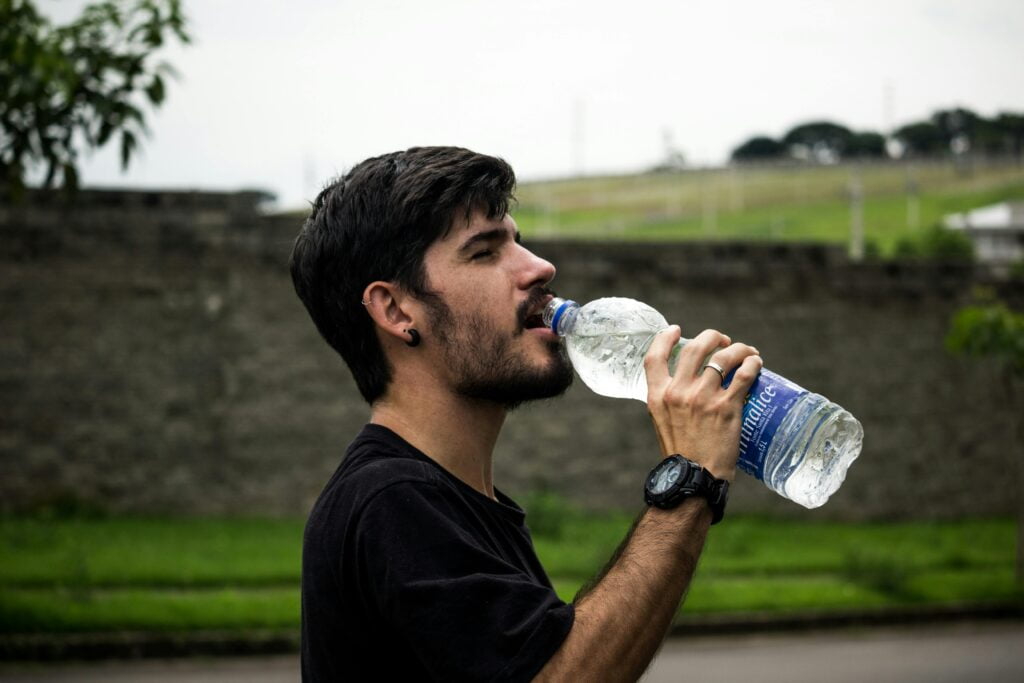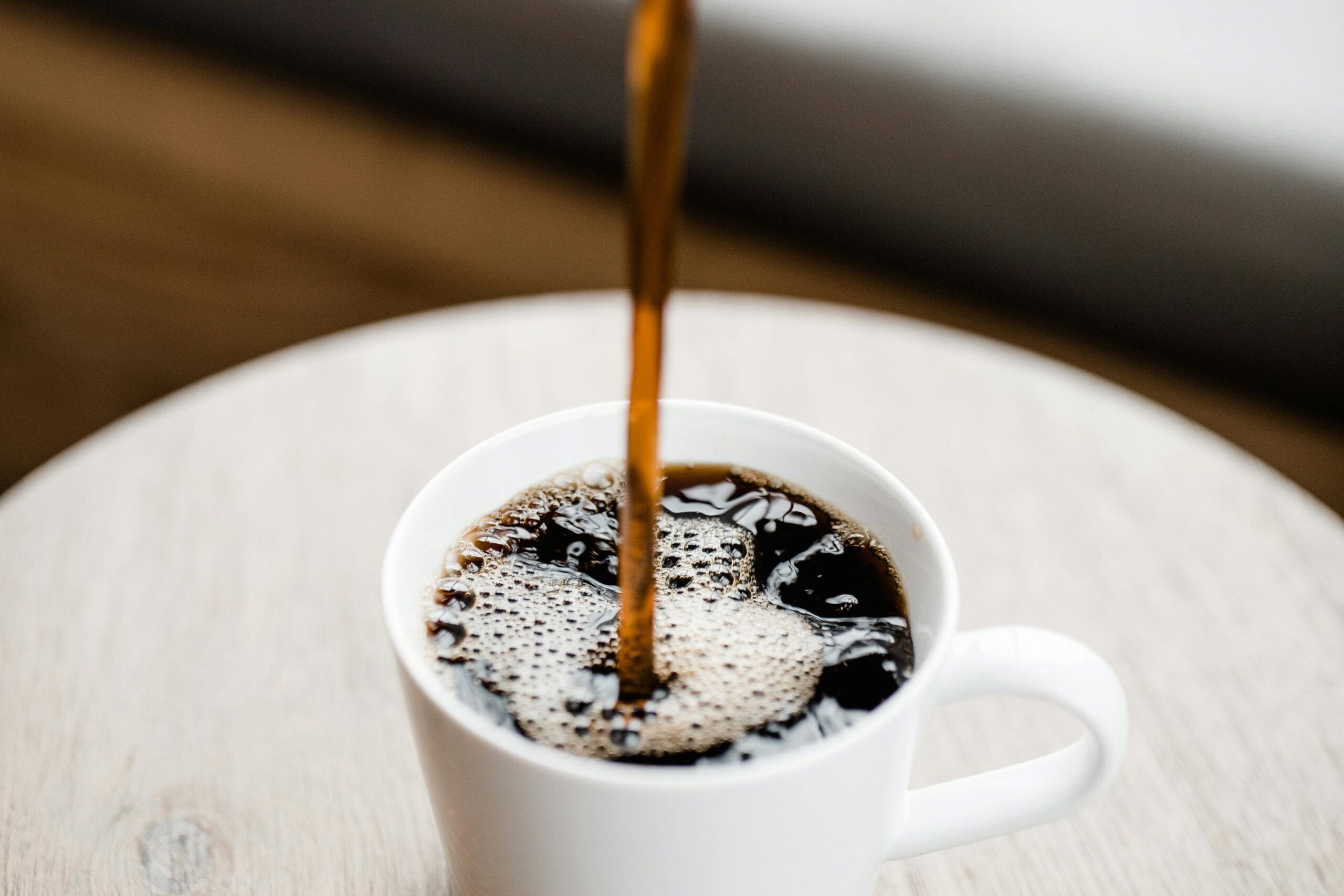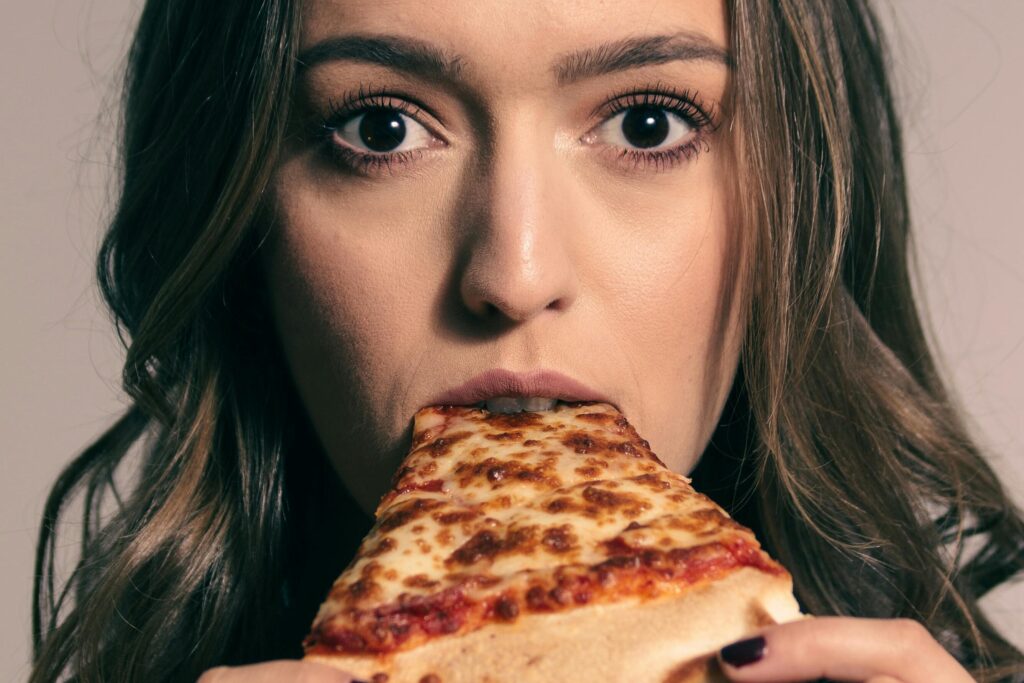Coffee is a very popular drink enjoyed by people all over the world. People like it because it tastes good and might be good for your health.
But… does coffee make you lose weight? Some say it can speed up your metabolism and make you less hungry, while others aren’t so sure.
“Doubling caffeine intake led to a 22% reduction in weight, a 17% reduction in BMI, and a 28% reduction in fat mass on average across 13 randomized controlled trials, suggesting caffeine promotes weight and fat loss.” – Buoy Health… Read the study here.
However, there’s a saying that says: “All that glitters, is not gold”
Stay with me now, and I’ll explain to you why.
In this article, you’ll learn how coffee might affect weight loss and clear up some common misunderstandings you might have.
I want to help you understand what’s true and what’s not, so you can make smart choices about drinking coffee for weight loss.
Myth 1: Coffee Alone Leads to Weight Loss

Some people think that drinking coffee can help them lose weight all by itself.
They believe that the caffeine in coffee can speed up their metabolism and make them less hungry, leading to weight loss.
But is it really that simple?
Understanding Coffee’s Effects
It’s true that caffeine, which is found in coffee, can temporarily boost energy and make you feel less hungry.
This might make you eat less and burn a few more calories, but it’s not a magic solution for losing weight.
Temporary vs. Long-Term Effects
The boost in metabolism and decrease in appetite that caffeine provides are ONLY temporary.
This means that while you might feel a little more energetic and eat a bit less for a short time after drinking coffee, these effects won’t last long term.
The Big Picture
Trying to rely solely on coffee for weight loss ignores the bigger picture of healthy living.
Successful weight management involves more than just drinking coffee.
It’s about eating a balanced diet, staying active, and making sustainable lifestyle changes.
Myth 2: Coffee Causes Dehydration

Many people think that drinking coffee makes you lose water from your body, leaving you dehydrated. But that’s not entirely true!
Understanding Dehydration
Dehydration happens when your body doesn’t have enough water to function properly.
When you’re dehydrated, you might feel thirsty, tired, or dizzy.
The Truth About Coffee
Coffee contains caffeine, which some think can make you lose water because it’s a mild diuretic.
A diuretic is something that makes you pee more often.
But here’s the thing: the amount of fluid you get from drinking coffee usually makes up for the extra peeing caused by caffeine.
Caffeine: It is a stimulant found in various beverages and foods, such as coffee, tea, and chocolate. It works by blocking the action of adenosine, a chemical in the brain that promotes sleep. This leads to increased alertness and focus.
How Coffee Can Help Hydration?
Drinking coffee in moderation can help you stay hydrated. The liquid in coffee adds to the fluids your body needs, keeping you hydrated throughout the day.
Watch Your Coffee Intake
However, it’s essential to be mindful of how much coffee you drink. Too much caffeine can still lead to problems, like jitteriness or trouble sleeping.
So, it’s best to stick to moderate coffee consumption to maintain a healthy balance of fluids in your body.
Myth 3: Drinking Coffee Before Exercise Enhances Fat-Burning

Some people believe that drinking coffee before working out helps them burn more fat. They think that the caffeine in coffee boosts their fat-burning abilities.
But does it work that way?
The Idea Behind Coffee and Exercise
The idea is that caffeine, found in coffee, can give you an extra energy boost during your workout.
This might help you exercise longer and harder, which could lead to burning more fat.
The Reality Check
However, while caffeine can give you a temporary energy boost, there’s not enough evidence to say it directly increases fat burning.
Dr. Colleen Gulick says “Caffeine, a key component of coffee, is known to stimulate thermogenesis, which is the process by which the body generates heat and burns calories,” she explained. “This thermogenic effect can increase energy expenditure.”
You can check it out for yourself here.
In other words, drinking coffee before exercising might help you feel more energetic, but it doesn’t necessarily mean you’ll burn more fat.
The Downsides of Too Much Caffeine
Plus, if you drink too much coffee before working out, it could make you feel jittery or uncomfortable.
This might make it harder for you to exercise effectively.
Finding the Balance
It’s essential to strike a balance when it comes to caffeine intake before exercise.
While a moderate amount might give you a little extra pep, too much could end up working against you.
Myth 4: All Types of Coffee Aid in Weight Loss Equally

Some people think that all kinds of coffee help with weight loss equally. They believe that whether it’s black coffee, a fancy latte, or a sweet mocha, they’ll all have the same effect on their waistline.
But is that true?
Different Types, Different Effects
The truth is, that not all coffee is created equal when it comes to weight loss. How the coffee is made and what’s added to it can make a big difference.
Plain Black Coffee vs. Fancy Drinks
Plain black coffee, without any added sugar or cream, is the best choice if you’re trying to manage your weight.
It’s low in calories and doesn’t have any extra stuff that could add inches to your waistline.
Watch Out for Added Calories
On the other hand, fancy coffee drinks like lattes and mochas can be loaded with calories from things like syrups, whipped cream, and flavored sauces.
These extra calories can quickly add up and sabotage your weight loss efforts.
Choose Wisely
So, if you’re looking to enjoy coffee while watching your weight, stick to plain black coffee or opt for lighter options with minimal added ingredients.
Now that summer is around the corner, here are 7 summer coffee recipes that are easy to make so you can stay refreshed anytime everywhere.
That way, you can still savor your coffee without worrying about its impact on your waistline.
Myth 5: Coffee Suppresses Appetite Indefinitely

Some people believe that drinking coffee can make them feel less hungry forever.
They think that the caffeine in coffee will permanently suppress their appetite, helping them eat less and lose weight.
Coffee’s Temporary Appetite Suppression
It’s true that caffeine, found in coffee, can temporarily make you feel less hungry. This might lead you to eat fewer calories in the short term, which could help with weight loss goals.
Tolerance and Diminished Effects
However, over time, your body can get used to the effects of caffeine, and it might not suppress your appetite as much as it did initially.
This means that the appetite-suppressing effects of coffee are not everlasting and may diminish over time.
Potential Disruption of Hunger Cues
Relying too much on coffee to control your appetite can also mess with your body’s natural hunger cues.
Instead of listening to when you’re starving, you might start eating based on when you’ve had your last cup of coffee, which could lead to overeating.
Conclusion
It’s important to understand the truth about coffee and weight loss. While coffee can be good in small amounts, it’s not a magic fix for losing weight.
Drinking coffee might make you feel more awake and less hungry for a short time, but it won’t make you lose weight on its own.
To manage your weight, you need to eat healthy, move your body, manage stress, and get enough sleep.
By knowing the facts and finding balance, you can make better choices about how much coffee you drink and how it fits into your overall health plan.
In short, enjoy your coffee, but remember it’s just one part of staying healthy.
Frequently Asked Questions (FAQs)
Can drinking coffee on an empty stomach help in weight loss?
While consuming coffee on an empty stomach may temporarily boost metabolism, it’s essential to prioritize balanced nutrition and regular meals for sustainable weight loss.
Is it true that adding butter to coffee promotes weight loss?
The concept of adding butter to coffee, popularized by the “bulletproof coffee” trend, remains controversial. While proponents claim it enhances energy and satiety, research supporting its weight loss benefits is limited.
Does caffeine-free coffee offer the same weight loss benefits?
Caffeine-free coffee retains some antioxidant properties but lacks caffeine’s potential metabolism-boosting effects. While it can be part of a healthy diet, its impact on weight loss may be less pronounced.
How many cups of coffee should one drink for weight loss?
Optimal coffee consumption varies depending on individual tolerance and sensitivity to caffeine. Generally, moderation is key, with excessive intake potentially leading to adverse effects on health.
Can drinking coffee late in the day set back weight loss efforts?
Consuming coffee late in the day may disrupt sleep patterns, which can indirectly affect weight loss. Sleep deprivation can alter hormone levels related to appetite regulation, potentially sabotaging weight loss goals.
Are there any health risks associated with excessive coffee consumption?
While moderate coffee intake is generally safe for most individuals, excessive consumption can lead to side effects such as insomnia, anxiety, and gastrointestinal discomfort. It’s crucial to listen to your body’s cues and limit coffee intake accordingly.
